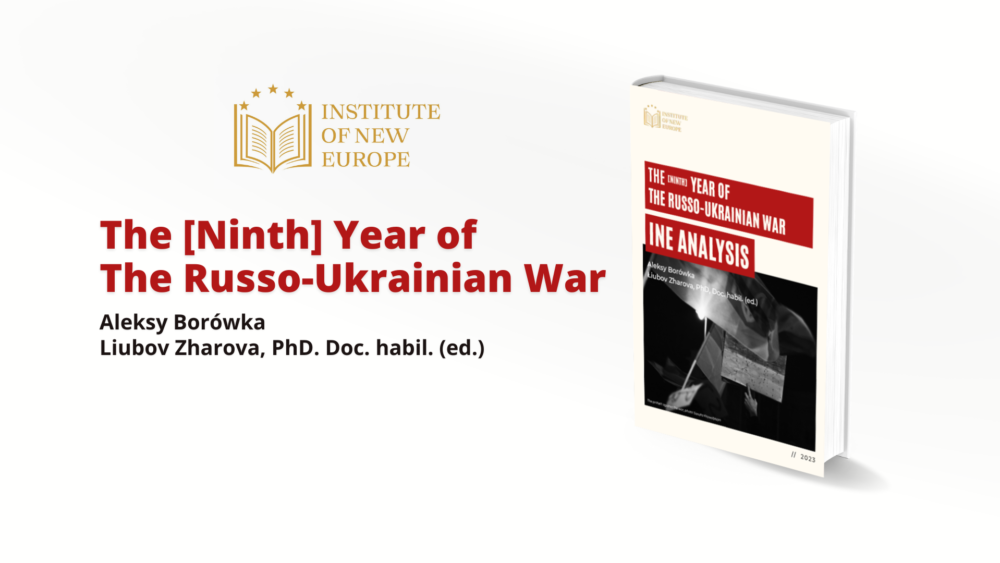One year after Russia’s full-scale aggression against Ukraine, we present you an in-depth analysis in which Aleksy Borówka (in cooperation with Liubov Zharova, PhD), traces the changes that have taken place in Ukraine in light of the events of the past year. The analysis considers historical, political, military, environmental and economic, socio-demographic, as well as civilisational and cultural aspects.
The Russo-Ukrainian war is a realization of the politics of the Russian Federation by military means, aiming to regain spheres of influence lost as a result of the collapse of the USSR. The moment properly considered the launching of the Russo-Ukrainian war is the 20th of February, 2014, when Russians started the operation to annex the Autonomous Republic of Crimea.
The most important conclusions that emerged from this analysis are as follows:
- Long-term trends are showing almost complete eradication of pro-Russian attitudes in Ukrainian society;
- After 9 years, the Russian Federation has not achieved the political objective of the war;
- Through the full-scale invasion of Ukraine, Russia provided a strong impetus for both more dynamic Western allied cooperation and NATO enlargement in terms of Sweden and Finland;
- Despite large-scale destruction and a decrease of GDP in 2022 of more than 30%, Ukrainians are continually restoring the function of the infrastructure necessary to rebuild the economy;
- The 2022 phase of the Russo-Ukrainian war resulted in the largest intra-European refugee flow since the Second World War;
- The military aggression on Ukraine has led to an acceleration of cultural change, deepening and strengthening the adherence of Ukrainian culture to Western civilization;
- Ukrainians, on the basis of the heroic defense of their country strengthening national bonds, are heading towards complete displacement of Russian Armed Forces from annexed Ukrainian territories.
Media Patronage: The Forum of Young Diplomats
Graphic Design and Photos: Sandra Krawczyszyn
Translation and Proofreading: Leon Sinfield, Mateusz Gibała, Ewelina Załuska





























Comments are closed.